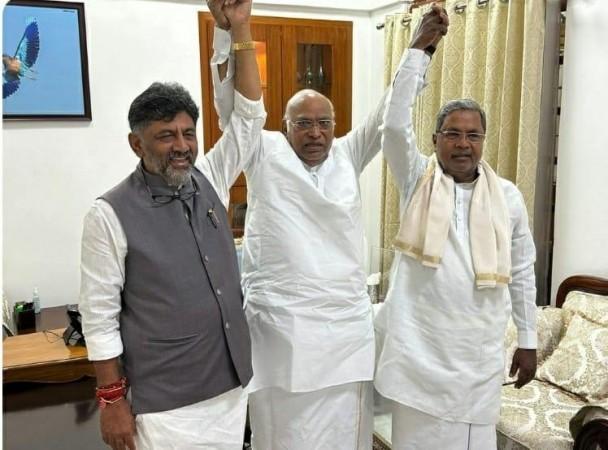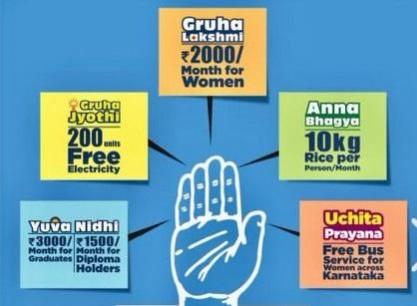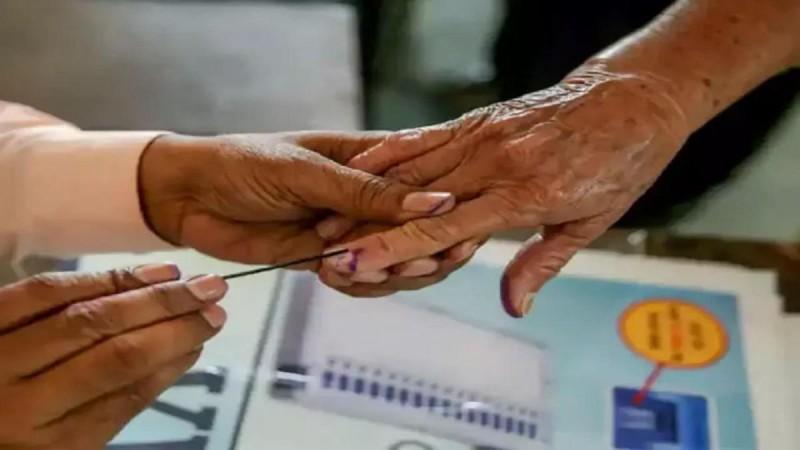It's been good 45 days since Congress leader Siddaramaiah took oath as the CM of Karnataka. On May 20th the newly elected CM, along with his deputy Shivakumar, rushed to the state legislative assembly within hours of taking oath.
"The 'five' guarantees will be passed in cabinet meeting and order will be issued to implement them today itself," he announced to the media, stressing that, "his cabinet has granted in principle the approval to the five guarantees in first meeting itself."

However, regardless of the political parties or leaders, performance and poll promises usually have a track record of falling on different sides of the fence; here's taking a look at how big or small is the gap between what's promised and what's delivered, so far.
Promise 1: Gruha Jyoti - Will know in August
In a clearly populist and also controversial move, the Congress, in its poll manifesto and during election speeches, promised 200 units of free power to all households. In a recent media interaction, Siddaramaiah said, "Gruha Jyoti scheme will begin from July 1. 200 units of electricity will be given for free.
Consumers who haven't paid their bills till July will have to pay. So from July onwards, it will be free upto 200 units but the bill will come in August. Big queues in front of ESCOM offices have become a common sight everywhere in the state, while those familiar with online are able to do it easily.

By August, when the electricity bill comes that the residents can know the status of election promised being fulfilled. The state government also put something in fine print recently, which is that free electricity will be only for households which use an average of 200 units or less per month.
Promise 2: Gruha Lakshmi - To be implemented from August 15
The assurance of ₹2,000 monthly assistance to the woman head of every family was a win-win from many perspectives. Not just it became instrumental in making Congress win by a sweeping margin, but the move aimed at women empowerment and welfare of children in a more direct manner. While the government of Karnataka claims to have greenlighted the move on paper and in theory, it will practically be launched on Independence Day on August 15.
Promise 3: Anna Bhagya - Partly Delivered
With many families still falling well under the BPL, elections are still held with promises like 10kg of rice free to every member of BPL household. The Anna Bhagya scheme was recently announced to be implemented from July 1 with either cash or rice being likely delivered after July 10.

However, CM Siddaramaiah recently assured that July's amount under the scheme will be paid to beneficiaries in July itself, instead of rice. "Most likely we will start making the payments after July 10," he said.
There have been ground reports of the government facing difficulty procuring large quantities of rice required to fulfil its poll promise. Which is why, the state government decided to disburse cash in lieu of rice at the rate of ₹34 per kilo.
When questioned, Food and Civil Supplies Minister KH Muniyappa said that the amount of Rs 170 will be transferred to the bank account of beneficiaries in a week or ten days. "90% of beneficiaries have a bank account. 5kgs per person means, the beneficiary will get Rs 170."
Promise: YuvaNidhi - Offered from next year
A huge and vicious wave of unemployment engulfs the nation at the moment. The promise of some support from the government went down well with both Congress and the voters before elections. However, the poll promise of ₹1,500 for unemployed diploma holders and ₹3000 to unemployed graduates (both in the age group of 18-25) for two years, will be offered from only next year as promised.
Promise: Shakti - Delivered
Another way of empowering women, the poll manifesto guaranteed free travel to all women in public transport throughout the state. The Shakti scheme for women in state run buses came into force on June 11.
Several social media accounts showed women happily sharing pictures of their ticket with ₹ 0. Barring luxury buses, the free ride for women has made an unprecedented impact with women going on holiday trips or temple runs across the state.
Is it sustainable?
Are they economically sustainable? Recently, economists sceptical of the freebies estimated their total amount at ₹65,082 crores a year, which is roughly 20% of the state budget. In order to prevent misuse, post-elections, the state government has put a few riders in place.
For instance, the 200 units of free electricity will be available only to those who use 200 or fewer units of power in a month. The Congress government headed by Siddaramaiah will be in power for the next five years, till 2028. Either way, there's ample scope for fulfilling them or make amends.

















